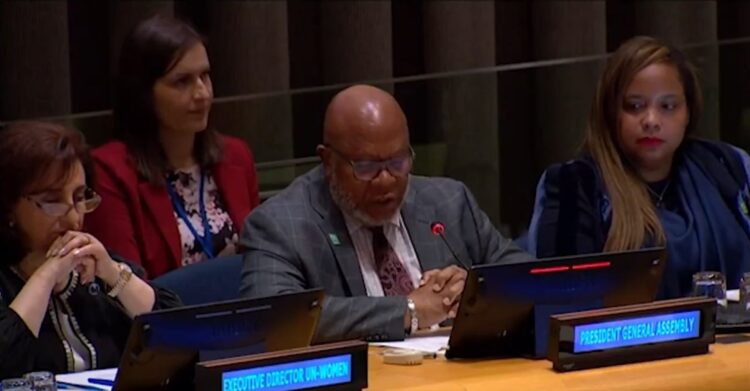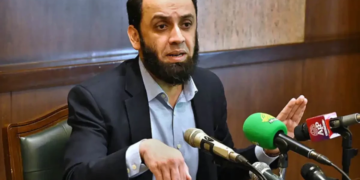On the International Day for Women in Diplomacy, United Nations General Assembly (UNGA) President Dennis Francis paid tribute to Hansa Mehta, a feminist leader, activist, and diplomat from India. He highlighted her important role in making the Universal Declaration of Human Rights (UDHR) more inclusive.
Hansa Mehta is known for successfully arguing against using the term “men” to represent all humanity. She played a key role in changing the phrase “All men are born free and equal” to “All human beings are born free and equal” in Article 1 of the UDHR. This language change was a significant step forward in the fight for women’s rights and gender equality.
During a ceremony to mark the day, President Francis emphasized the importance of gender equality in diplomacy. He pointed out that having more women in diplomatic roles reflects broader societal progress towards inclusivity and respect for women’s and girls’ rights. He also highlighted the historical contributions of women diplomats, who have broken barriers and enriched multilateralism over the years.
Speaking passionately about Hansa Mehta’s influence, President Francis posed a powerful question: “Would the Universal Declaration of Human Rights be truly universal today if Hansa Mehta had not insisted its opening line be changed from ‘all men’ to ‘all human beings’ are born free and equal?”
The UNGA President also reiterated the United Nations’ commitment to advancing gender equality and empowering women diplomats worldwide. He recognized the essential contributions of women in shaping a fairer and more inclusive world.
Hansa Mehta was a prominent Indian scholar, educator, social reformer, and writer. Born on July 3, 1897, she was a strong advocate for women’s rights. As the President of the All India Women’s Conference (AIWC) in 1946, she led the drafting of the “Indian Women’s Charter of Rights,” which called for gender equality, civil rights, and justice for women in India.
ALSO READ: “Julian Assange to Plead Guilty in US Espionage Deal and Return to Australia”
Mehta was also a member of the Constituent Assembly that drafted the Indian Constitution. She served on its Advisory Committee and the sub-committee on Fundamental Rights. Many provisions of the AIWC’s Charter influenced the gender-neutral provisions in the Indian Constitution.
On the international stage, Hansa Mehta played a pioneering role in drafting the UDHR. She was one of only two female delegates, alongside Eleanor Roosevelt, on the United Nations Commission on Human Rights.
President Francis’s tribute to Hansa Mehta underscores the ongoing struggle for gender equality and the crucial role women play in diplomacy.

















Comments